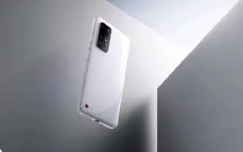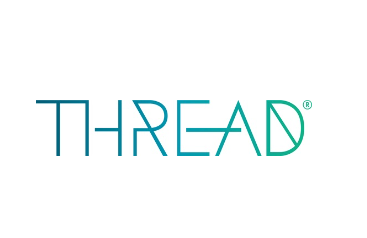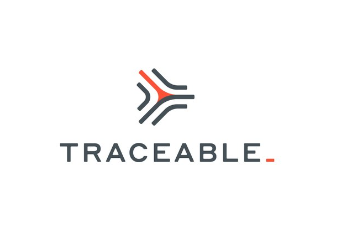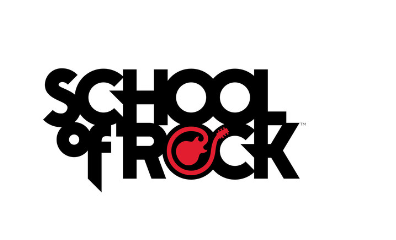教育信息:六年级下册英语复习资料-九游官网首页进入
来源:
2021-05-28 08:10:32
导读 当下教育都是每个家庭中非常重要一个环节,因为很多家庭为了让孩子获得更好的教育煞会苦心,但是不一定会获得效果这才是真正愁的地方,孩子
当下教育都是每个家庭中非常重要一个环节,因为很多家庭为了让孩子获得更好的教育煞会苦心,但是不一定会获得效果这才是真正愁的地方,孩子出门的言行举止就能看到一个家庭对孩子的教育是什么样,有句古话叫上梁不正下梁歪,课外教育也很重要,那么现在小编就为小伙伴们收集到了一些课外知识,希望大家看了有所帮助。
小学六年级英语下册 毕业考试总复习资(一)针对个人情况进行交流(提问与回答):1.询问名字:what’s your name? my name’s wang ling. i’m charlie2.询问年龄:how old are you? i’m twelve.how old is he? he is thirteen.3.询问生日:when is your birthday? it’s march 12th.4.询问职业:are you a doctor? yes, i am. no, i am not.what do you do? i am a teacher.what does he do? he is a vet.5.询问身高:how tall are you? i am 158 centimeters tall.6.询问体重:how heavy are you? i weight 60 kilograms.7.询问喜爱的颜色:do you like red? yes, i do. no, i don’t.does he like red? yes, he does. no, he doesn’t..what color do you like? i like green.what color does he like? he likes blue.8.询问喜爱的食品:what food do you like? i like chicken. 9.询问喜爱的学科:what’s your favorite subject? my favorite subject is math. 10.询问喜爱的季节:what season do you like? i like spring.11.询问喜爱的运动:what sport do you like? i like playing football. 12.询问喜爱的动物:what animal do you like? i like dogs. 13.询问承担的家务: what chores do you have to do? i have to walk the dog.what chores does he have to do? he has to feed the fish.14.询问更喜欢什么物品:which sunglasses do you prefer? i prefer these.15.询问身体状况:how are you today? i’m not well. what’s the matter? my leg hurts.16.询问想要的、需要的:what do you want? i want a t-shirt.what do you need? i need flour, milk, eggs and butter.17.询问物品拥有:do you have a cap? yes, i do. no, i don’t.does he have a watch? yes, he does. no, he doesn’t.18.询问经常在固定的时间做什么事情: what do you do on sunday? i play tennis.what does he do on monday? he goes to school.19.询问经常在什么时间做这样的事情:when do you get up? i get up at 6:00.when does he get up? he gets up at 6:30.20.询问现在正在做什么事情:what are you doing? i’m reading a book.what is he doing? he is singing.21.询问将来的计划、活动安排:what are you going to do tomorrow? i’m going to ride a horse.what will you do next sunday? i will go shopping.what are you doing tomorrow? i’m going bowling.22.询问活动的频率次数:how often do you play tennis? twice a week.23.询问所在的地点、方位: where are you? i’m in front of the car.where were you yesterday? i was at home.24.询问过去时间内做了什么事情:what did you do yesterday? i went to school.25.询问、质疑过去所做过的事情: did you go to the park last night?yes, i did. no, i didn’t.26.询问是谁: who’s that? that’s ann. who’ he? he’s my father.who was first? ken was first.(二)针对物品情况进行交流(提问与回答):1.询问物品名称:what’s this? it’s a pen. what are these? they are pens.,2.询问物品数量:how many pencils are there? there are ten.3.询问物品价钱:how much is the book? it is ¥30.how much are the books? they are ¥60.how much does this belt cost? it costs ﹩35how much do these belts cost? they cost ﹩70.4.询问物品所属:whose computer is this? this is my computer. it’s ken’s.whose cds are these? they are our cds. they’re ann’s.5.询问物品颜色等特征:what color is the duck? it’s yellow.6.询问物品位置:where is the book? it’s under the bag.(三)针对时间、天气进行交流(提问与回答):1.询问钟表时刻: what time is it? it’s 6:20.2.询问星期: what day is today? it’s monday.3、.询问月份日期:what’s the date today? it’s september 1st.4.询问天气状况:what’s the weather like? it’s windy.(四)以can 开头的问句:1.问答能力:can you swim? yes,i can. no, i can’t.2.请求许可:can he go out after school? yes, he can. no, he can’t.(五)询问比赛规则:what are the rules? you must wear sports shoes.(六)提出问题与建议:i’m bored. what should i do? you should play this game.he is tired. what should he do? he should go to bed early.(七)使用反意疑问句求证信息:i can watch tv, can’t i? yes, you can.he isn’t a teacher, is he? no, he isn’t.(八)表达同意或不同意:in the year 2050 life will be better. so do i. ( i do, too. ) i don’t like snakes. neither do i. ( i don’t, either.)五、语法知识:(一)英语动词4种时态:1.一般现在时:常与表示程度或频度的词连用,如:often(经常) , usually(通常,一般) , sometimes(有时) , always(总是,一直) , never(从不),表示经常性或习惯性的动作,表示现在的特征或状态,表示普遍真理。用动词原形表示,第三人称单数后,动词要在词尾加s(或es,或变y为i再加es)。如:i often get up at 7:00. he often gets up at 7:30. 2.现在进行时:表示现在或现在这一阶段正在进行的动作。用am / is / are 加 动词ing形式表示,如: what are you doing? i am reading a book. what is he doing? he is singing.3.一般将来时:常与表示将来的时间连用,如:tomorrow , next week , next year 等,表示将要发生的动作或情况。用 am/ is/ are 加 going to形式表示,如:what are you going to do tomorrow? i’m going to ride a horse. 用will 加动词原形表示,如:what will you do next sunday? i will go shopping. 用am/ is/ are 加动词ing 形式表示,如:what are you doing tomorrow? i’m going bowling.4.一般过去时:经常与表示过去的时间连用, 如: yesterday, last night等, 表示过去某时发生的动作或情况。动词要用动词的过去式。如:who was first? ken was first.where were you yesterday? i was at home.what did you do yesterday? i went to school.(二)形容词的比较级和最高级:1.单音节词:比较级加er, 最高级加est. 如:tall------taller-------- the tallest,he is taller than his brother. tom is the tallest in his class.2.多音节词和部分双音节词:比较级加more, 最高级加 the most. 如:interesting---------more interesting---------the most interesting, music is interesting subject. p.e. is more interesting than music.. science is the most interesting subject.六、仿写一段话 (要求至少五句话):1. about me 介绍自己my name is peter. i am 12 years old. i like art. i like playing football. i have to walk the dog every day.2. my family 我的家庭i have a happy family. my mother is a teacher. she is 36 years old. she likes singing. my father is a vet. he is 36 years old. he likes playing football. i’m a girl. i’m 13 years old. i like singing. we often play games together. i love them very much.3. my pet 我的宠物i have a dog. it is wang wang. it’s white. it has two big ears. we always play games together. i like it very much.4. my friend 我的朋友i have a good friend. his name is peter. he is 12 years old. he likes art. he likes playing football and walking the dog .5. my favorite我最喜爱的 ... (如:sports运动, subject学科, chores家务,fruit水 果, color颜色, teacher 老师等)i like sports very much. badminton is my favorite sport. i often play badminton with my friend after school. we play badminton on the playground. and i can play it very well.m一:学生易错词汇1. a, an的选择: 元音字母开头的单词用an,辅音字母开头的单词用a.2. am , is , are的选择: 单数用is , 复数用are. i 用 am , you 用 are.3. have , has 的选择: 表示某人有某物。单数用has , 复数用have. i , you 用 have .4. there is, there are 的选择:表示某地有某物,某人。单数用there is , 复数用there are.5. some, any 的选择:肯定句用some, 疑问句和否定句用any.6. 疑问词的选择:what (什么) who (谁) where (哪里) whose (谁的) why(为什么)when(什么时候)which(哪一个)how old (多大) how many (多少)how much(多少钱)二:形容词比较级详解当我们需要对事物作出比较时,需要用到比较级。比较级的句子结构通常是:什么 动词be (am , is , are ) 形容词比较级 than(比) 什么 ,如:i’m taller and heavier than you. (我比你更高和更重。)an elephant is bigger than a tiger. (一只大象比一只老虎更大。)形容词的比较级是在形容词的基础上变化而来的,它的变化规则是:①一般的直接在词尾加er ,如 tall - taller , strong - stronger ,②以e结尾的,直接加r ,如 fine – finer ,③以辅音字母加y结尾的,先改y为i再加er,如funny - funnier④双写最后的字母再加er,如big – bigger, thin – thinner ,hot – hotter☆注意 比较的两者应该是互相对应的可比较的东西。典型错误:my hair is longer than you.(我的头发比你更长。)比较的两者是我的头发、你(整个人),那么比较的对象就没有可比性。应该改为:my hair is longer than yours. 或my hair is longer than your hair.比较级专项练习:三:动词过去式详解 动词的过去式的构成规则有:a、规则动词①一般直接在动词的后面加ed:如 worked , learned , cleaned , visited②以e结尾的动词直接加d:如 lived , danced , used③以辅音字母加y结尾的动词要改y为i再加ed(此类动词较少)如 study – studied carry – carried worry – worried (注意play、stay不是辅音字母加y,所以不属于此类)④双写最后一个字母(此类动词较少)如 stopped b、不规则动词(此类词并无规则,须熟记)小学阶段要记住以下动词的原形和过去式:sing – sang , eat – ate , see – saw , have – had , do – did , go – went , take – took , buy – bought , get – got , read – read ,fly – flew , am/is – was , are – were , say – said , leave – left , swim – swam , tell – told , draw – drew , come – came , lose – lost , find – found , drink – drank , hurt – hurt , feel – felt四:动词现在分词详解 动词的ing形式的构成规则:①一般的直接在后面加上ing , 如doing , going , working , singing , eating②以e 结尾的动词,要先去e再加ing ,如having , writing③双写最后一个字母的(此类动词极少)有:running , swimming , sitting , getting五:人称和数人称代词 物主代词主格 宾格第一人称 单数 i(我) me my(我的)复数 we(我们) us our(我们的)第二人称 单数 you(你) you your(你的)复数 you(你们) you your(你们的)第三人称 单数 he(他) him his(他的)she(她) her her(她的)it(它) it its(它的)复数 they(他们/她们/它们) them their(他们的/她们的/它们的)六:句型专项归类1.肯定句:是指用肯定的语气来陈述的句子,如:i’m a student. she is a doctor. he works in a hospital. there are four fans in our classroom. he will eat lunch at 12:00. i watched tv yesterday evening.2.否定句:含有否定词或表示否定意义词的句子,如:i’m not a student. she is not (isn’t) a doctor. he does not (doesn’t) work in a hospital. there are not (aren’t) four fans in our classroom. he will not (won’t) eat lunch at 12:00. i did not (didn’t) watch tv yesterday evening.☆注意 小结:否定句主要是在肯定句的基础上加上了否定词 “not”。有动词be的句子则“not”加在be后面,可缩写成“isn’t,aren’t”,但am not 一般都分开写。没有动词be的句子则要先在主要动词的前面加上一个助动词(do,does,did),然后在它后面加上“not”,你也可以把它们缩写在一起如“don’t , doesn’t , didn’t )。这三个助动词要根据人称和时态来选择,其中“does”只用于一般现在时主语是第三人称单数的情况,而“did”只用于一般过去时,不论主语是什么人称和数,都用“did” 。3.一般疑问句:是指询问事实的句子,此类句子必须用“yes”,或“no”来回答。如:are you a student? yes, i am / no, i’m not. is she a doctor? yes, she is. / no, she isn’t. does he work in a hospital? yes, he does. / no, he doesn’t. are there four fans in our classroom? yes, there are. / no, there aren’t.are you going to buy a comic book tonight? yes, i am. / no, i am not. (yes, we are. / no, we aren’t.)will he eat lunch at 12:00? yes, i will. / no, i will not(won’t).are they swimming? yes, they are. / no, they aren’t.did you watch tv yesterday evening? yes, i did. / no, i didn’t.☆注意 小结:一般疑问句是在肯定句的基础上,①把动词be调到首位,其他照写,末尾标点符号变成问号即可。②没有动词be的句子则要在句首加上一个助动词(do,does,did)再把紧跟在后面的动词变回原形,末尾标点符号变成问号即可。这三个助动词也要根据人称和时态来选择,其中“does”只用于一般现在时主语是第三人称单数的情况,而“did”只用于一般过去时,不论主语是什么人称和数,都用“did” 。一般疑问句有个重要的原则就是问和答要一致,即问句里的第一个单词(助动词)和简略答句里的这个词是一致的。4.特殊疑问句:以特殊疑问词(what , where , who , which , when , whose , why , how等)开头引导的句子。此类句子应该问什么就答什么,不能用“yes 、no”来回答。如:what is this? it’s a computer.what does he do? he’s a doctor.where are you going? i’m going to beijing.who played football with you yesterday afternoon? mike.which season do you like best? summer.when do you usually get up? i usually get up at 6:30.whose skirt is this? it’s amy’s.why do you like spring best? because i can plant trees.how are you? i’m fine. / i’m happy.how did you go to xinjiang? i went to xinjiang by train.☆其中how又可以和其他一些形容词连用组成特殊疑问词组用来提问,如: how many(多少(数量)), how much(多少(钱)), how tall(多高), how long(多长), how big(多大), how heavy(多重)例句:how many pencils do you have? i have three pencils.how many girls can you see? i can see four girls.how many desks are there in your classroom? there are 51.☆小结:how many 用来提问可数名词的数量,主要有以上三种句式搭配,how many 名词复数 do you have? 你有多少……?how many 名词复数 can you see? 你能看见多少……?how many 名词复数 are there…? 有多少……?七:完全、缩略形式: i’m=i am he’s=he is she’s=she is they’re=they are you’re=you are there’s=there is they’re=they are can’t=can not don’t=do not doesn’t=does not isn’t=is not aren’t=are not let’s=let us won’t=will not i’ll=i will wasn’t=was not总结:通常情况下,'m即am,'s即is(但 let’s=let us), 're即are ,n't即not (但can’t=can not)
免责声明:本文由用户上传,如有侵权请联系删除!









